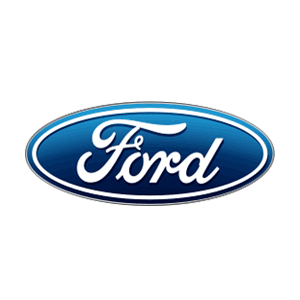Job Description
Job Description & Qualifications
Enhanced Central Gateway (ECG) Module Design and Release Engineer
At Ford Motor Company, we believe freedom of movement drives human progress. We also believe in providing you with the freedom to define and realize your dreams. With our incredible plans for the future of mobility, we have a wide variety of opportunities for you to accelerate your career potential as you help us define tomorrow’s transportation.
Do you have what it takes to make smart vehicles for a smart world? Join the Ford Product Development team. Utilizing Design Thinking & User Experience methods, you’ll work to deliver breakthrough products and services that delight our customers. We’re seeking forward-thinking, laser-focused professionals with a passion for bringing innovative, exciting, and sustainable ideas to life. We have opportunities around the world for you to contribute to such advancements as autonomy, electrification, smart mobility technologies, and more!
What you’ll be able to do:
Lead component packaging and integration of ECG on multiple vehicle lines
Ensure Programs’ deliverables are met on time and with the highest quality. Following Ford development process and tools such as: FEDEBOM, Packaging/Digital Buck, DPA Checks, WERS, FEDE, Subsystem/Supplier work plans, IVS SW release process, DVP&R, Engineering Signoff, etc.
Develop work plans and lead resolution of ECG implementation and validation related issues
Lead Design Validation and Production Validation for components of ECG
Support prototype vehicle builds and production vehicle launches
Lead current production/assembly plant issues associated with ECG features/parts
Occasional travel to Assembly plants to support vehicle launch and production issues
Lead quality and warranty analysis of production vehicles
The minimum requirements we seek:
Bachelor’s Degree in Electrical Engineering, Mechanical Engineering or Computer Engineering
5+ years of experience in automotive engineering or product development in electrical area.
2+ years of experience with Ford Product Development and release tools using one of the following: FEDE, VSEM, WERS (release management System), AIMS (issue tracking system), FEDEBOM, JIRA (software bugs tracking system) or Teamcenter.
Our preferred requirements:
PPAP and APQP knowledge.
Proficient in Root cause analysis and DFMEA
CAD packaging knowledge
Software management knowledge
Previous experience as a D&R or Application Engineer for electronic modules
Familiarity with CAN communication protocol
Familiarity with Ford product development and GPDS processes (i.e. eFDVS, VSEM, WERS, FSMS, AIMS, FEDEBOM, JIRA, Teamcenter, etc.)
Ability to use automotive tools: DET, CAN tools
Excellent leadership, communication and project management skills
Good oral and written communication skills
Ability to communicate with multi-functional teams and champion issue resolution to get the job done
Understanding of Vehicle Architecture and communication
Highly motivated, extremely proactive and attention to details
What you’ll receive in return:
As part of the Ford family, you’ll enjoy excellent compensation and a comprehensive benefits package that includes generous PTO, retirement, savings and stock investment plans, incentive compensation and much more. You’ll also experience exciting opportunities for professional and personal growth and recognition.
If you have what it takes to help us redefine the future of mobility, we’d love to have you join us.
Candidates for positions with Ford Motor Company must be legally authorized to work in the United States. Verification of employment eligibility will be required at the time of hire.
Visa sponsorship is not available for this position.
Ford Motor
Dearborn, MI
Ford Motor Company is an American multinational automaker that has its main headquarter in Dearborn, Michigan, a suburb of Detroit. It was founded by Henry Ford and incorporated on June 16, 1903. The company sells automobiles and commercial vehicles under the Ford brand and most luxury cars under the Lincoln brand. Ford also owns Brazilian SUV manufacturer Troller, an 8% stake in Aston Martin of the United Kingdom and a 32% stake in Jiangling Motors.It also has joint-ventures in China (Changan Ford), Taiwan (Ford Lio Ho), Thailand (AutoAlliance Thailand), Turkey (Ford Otosan), and Russia (Ford Sollers). The company is listed on the New York Stock Exchange and is controlled by the Ford family; they have minority ownership but the majority of the voting power.
Ford introduced methods for large-scale manufacturing of cars and large-scale management of an industrial workforce using elaborately engineered manufacturing sequences typified by moving assembly lines; by 1914, these methods were known around the world as Fordism. Ford's former UK subsidiaries Jaguar and Land Rover, acquired in 1989 and 2000 respectively, were sold to Tata Motors in March 2008. Ford owned the Swedish automaker Volvo from 1999 to 2010. In 2011, Ford discontinued the Mercury brand, under which it had marketed entry-level luxury cars in the United States, Canada, Mexico, and the Middle East since 1938.
Ford is the second-largest U.S.-based automaker (behind General Motors) and the fifth-largest in the world (behind Toyota, VW, Hyundai-Kia and General Motors) based on 2015 vehicle production. At the end of 2010, Ford was the fifth largest automaker in Europe. The company went public in 1956 but the Ford family, through special Class B shares, still retain 40 percent voting rights. During the financial crisis at the beginning of the 21st century, it was close to bankruptcy, but it has since returned to profitability. Ford was the eleventh-ranked overall American-based company in the 2018 Fortune 500 list, based on global revenues in 2017 of $156.7 billion. In 2008, Ford produced 5.532 million automobiles and employed about 213,000 employees at around 90 plants and facilities worldwide.
-
IndustryAutomotive
-
No. of Employees199000
-
Website
-
Jobs Posted669


